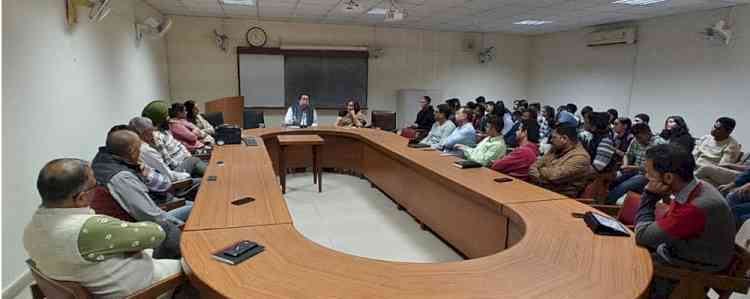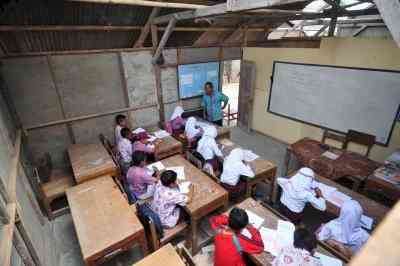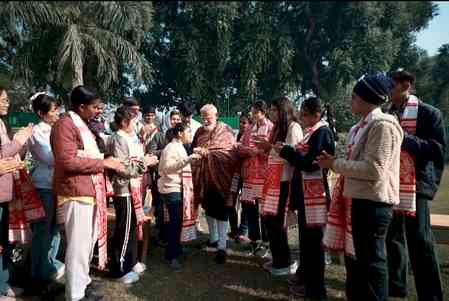Special lecture on topic “Pakistan- the Rule of Establishment”
Department of Defence and National Security Studies, Panjab University, Chandigarh organised a special lecture on the topic “Pakistan- the Rule of Establishment” by R.K. Kaushik, IAS, on Tuesday. Prof. Simrit Kahlon, Dean Student Welfare (W) welcomed the dignitaries and introduced the theme for the event.

Chandigarh, November 21, 2023: Department of Defence and National Security Studies, Panjab University, Chandigarh organised a special lecture on the topic “Pakistan- the Rule of Establishment” by R.K. Kaushik, IAS, on Tuesday. Prof. Simrit Kahlon, Dean Student Welfare (W) welcomed the dignitaries and introduced the theme for the event.
Kaushik started his lecture by highlighting the prominent politicians and military leaders of Pakistan like Mohammad Ali Jinnah, Liquayat Ali Khan, Nawaz Sharif, Imran Khan and Asif Munir and traced their journey to power. He was of the view that the establishment was running the state affairs in Pakistan pointing out that the British didn’t want to give the undivided India on a platter to congress. The roots of conflict between the two countries lie in the pre independence policies of the britishers. He defined establishments as the deep state, led by the Army and supported by various powerful elements of civil leadership, judiciary and business community.
He further stated that the first four years after independence and from 1971 to 1977 were the time when the establishment was not in control in Pakistan. The establishment controls the domain of nuclear, foreign policy, defence and financial matters which are out of bounds of the civilian leadership and its the Pakistani military which consumed almost 50 percent of their total annual budget. The establishment sought weak civilian leadership so that it could continue to assert its dominance over the affairs of the state. He was of the view that the establishment had a pervasive presence with its own production facilities in Pakistan. It has perennial hatred against India and spreads terrorism in India. He also attributed democracy failure in Pakistan to the Muslim league, which had no grass root presence in areas that eventually became the state of Pakistan. Moreover no elections were held there for 23 years and its small history was marred by martial rule. He concluded by saying that he didn’t see any civilian government coming to power in the next few decades with its full independent control without the interference from the military establishment.
The lecture was attended by the faculty, research scholars, students and student officers of the department.



 City Air News
City Air News 










